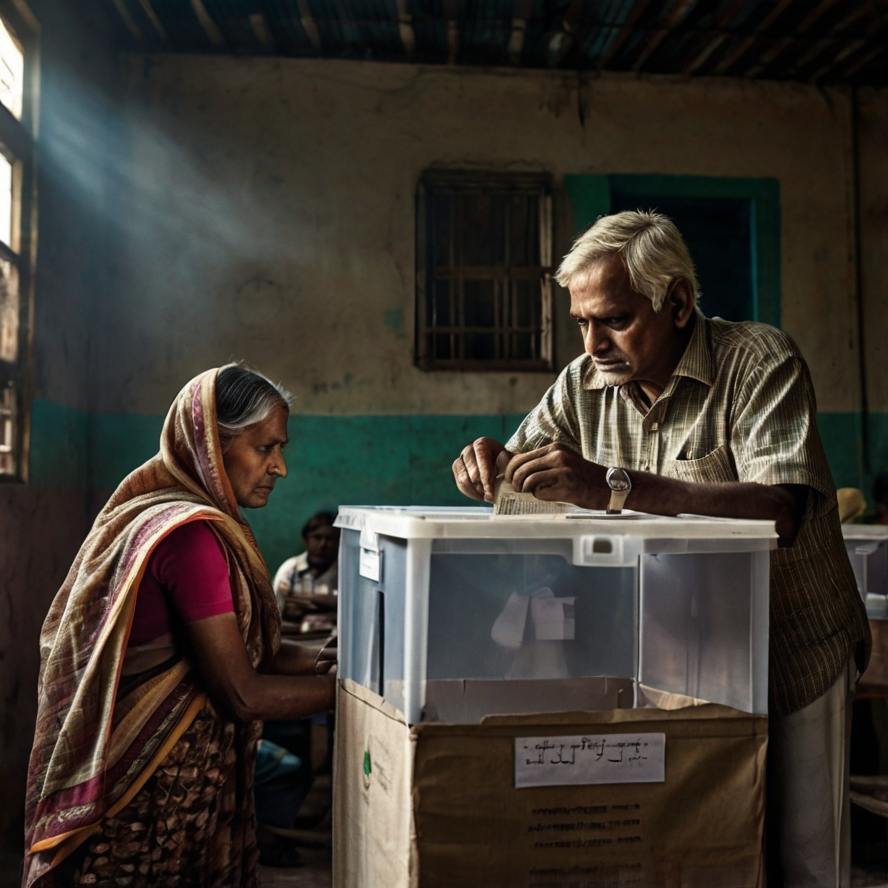The unfolding of the Indian election might have come as a surprise to many, for one is the BJP who steamrolled the campaign seasons with slogans of "400 par". While it remains 240 seats popular in a house of 520 members, a few stories should not go unnoticed. First, the BJP's popularity and the win for a third term is no ordinary feat. Only a few leaders of the past have managed such an elusive feat. This, indeed, is the trust that the brand Modi has built over the years. In politics, we often get acclimatized to the situations, in certain aspects too critical of it. When the young generation looked at Indira Gandhi's cabinet, they vowed never to again let such a solid mandate to a single party that its chief could declare an emergency, and no structures would be able to prevent that. This, however, ended up in fragmented colours in the Lok Sabha, the era of coalitions and surprise prime ministers. Needless to say, the horse-trading of MPs and the mindless corruption scandals gobbled up the dreams of a nation. The youth of the 90s, fed up with the coalition governments and their corrupt measures, now choose a single party. However, complaints have also begun to pile up on the BJP table. While being communal is a well-known charge, the BJP remains in the dilemma of whether to embrace or fight against it.
This is where the election becomes interesting; the opposition, which could only have been said to be in hibernation, has found a clink in the BJP's armour. Striking at the nation's heart, Akhilesh-led SP might have robbed BJP, the poster boy of the BJP campaign, Ram Mandir. In this case, Rahul seems like the dorm representative who is happy to be part of any celebration that brings positive publicity. Getting his part to 100 seats from 40 is no rare feat. But should all of the credit be given to Rahul Baba? The opposition has lost this election, but they haven't lost face like in 2019. This begs the question, how should the opposition, or rather INDIA coalition strategies to keep its victories coming over the next five years. In the next few years, parties within the alliance will likely face each other in some elections; this would re-ignite the coalition era break-ups and patch-ups, rivalling the Indian soap operas. More so, it has become apparent in the elections that the formulation which poses any challenge to the BJP comes from the culmination of all actors (like the Muslims, Dalits, and Liberals). Leaving out any of the elements would diminish the potential of the concoction, while all these elements are not so stable when put together in the same bottle. But as the old adage goes, " a band in the road is not the end of the road".
Yet another aspect of the election seems to get only periodic attention. While there were attempts of one nation, one election, the management of elections has remained a bone of contention. From EC action on banning/ jailing contestants for provocative speeches to incidents where booths are captured to prevent voting. The process is cumbersome and too large to manage. There is a lot that relies on the resilience of the Indian voter, which makes the process possible. In a glaringly visible difference between the turnouts in urban and rural populations, one can see the importance of voting for different sections of the country. And this is where the election ties back to the person's identity. In a country of growing divide, the election stands as a common right. While the rich might fare well, even when relinquishing this fundamental right, the poor must stand by their only means to convey their plight to the government. This is perhaps the great balancing act, where the voice of the underprivileged gets an equal ear to that of the affluent.
This explains two rising (or, say, revisited) phenomena in Indian elections. The power of door-to-door personal campaigning and the misfit of exit polls. At some point in Indian history, the election transformed into loud rallies with a massive crowd, where the leaders were chosen based on their oratory prowess. This played well into the rise of social media and, consequently, a rise in analytics, which predicted poll results from the presence and cheer for the parties. But there is no visible cheer to measure when the campaign goes silent, personal and deep into the country's villages. The votes cast remain this only testament. That is where not Ram Mandir but an unemployed child becomes a deciding factor. That is a bigger strategy afterthought as the 2024 elections wrap.